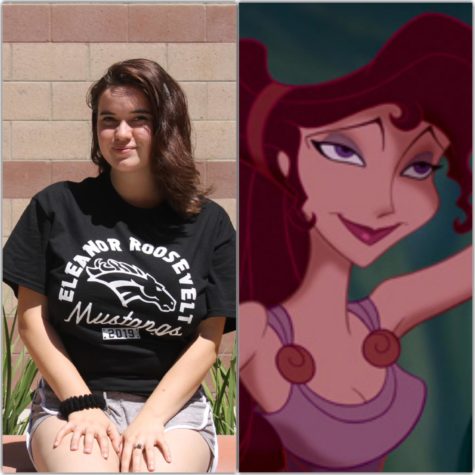Eating Disorders Among High School Students

February 8, 2019
TRIGGER WARNING: this article contains sensitive material relating to eating disorders and mental health. The author of this article is not a mental health professional.
Dictionary result for eating disorder
eat·ing dis·or·der
/ēdiNG diˈsôrdər/
noun
- any of a range of psychological disorders characterized by abnormal or disturbed eating habits (such as anorexia nervosa).
My Story
When I was in the seventh grade I noticed things in my body changing. My weight was shifting rapidly and I wasn’t sure why; I participated in PE, I ran a seven-minute mile (which was average for the class) and I even worked out in the weight room. It felt like my body was betraying all the work I was putting into it, I felt terrible about the way I looked. To me, I wasn’t losing enough weight to meet the standards nobody placed on me except the painfully thin Nina Dobrev on my favorite show at the time. The amount of weight I was losing became the center of my focus; I would go from starving myself all day to binging late at night.
I remember the first time my mom confronted me about my late night eating. I had three empty, personal sized bags of Lay’s Original Potato Chips laying around my cluttered room. My mom wasn’t angry with me or upset, she just wanted me to communicate with her at dinner that I wanted a larger portion.
If only I told her that I felt unlovable because I had gained some weight over the summer, or that I felt like everyone stared at me when I ate lunch with my friends (even though no one cared).
But I never told my mother how I felt about my body or the paranoia that plagued me every time I even thought about food.
This feeling went on for about two more years and when I hit high school I was even worse. My mother was fed up with my wasting the delicious food she was making and started giving me trail mix for a snack. To some kids, this may have seen unusual and almost discouraging from eating. Yet, I thought it was one of the kindest things. She had noticed I wasn’t eating and made the effort to try and accommodate to my habits. She went out of her way to give me something I could enjoy eating and feel way less guilty about it, and I doubt she even knew it.
My sophomore year I moved in with my dad and in that same process, aligned myself with some very very bad people. One of those people I ended up dating (huge mistake by the way and I knew it) and I was convinced he was perfect for me. Well maybe not perfect, but he was what I thought I deserved; mean, unforgiving and judgemental. I thought I needed him to keep me in line and “better” me into a good, skinny girl.
I could not have been more wrong about what I deserved. One day during lunch I went to visit my then boyfriend who was eating in a class I didn’t have but the teacher knew me well enough. I was leaning on his chair, half sitting on his leg and half supporting myself. At this point in time, I identified as being bisexual and my boyfriend was extraordinarily homophobic (see what I meant by judgemental) and I was afraid to come out to him. He had made comments previously about my weight and how I could stand to lose a few pounds (I weighed barely over 130 pounds at the time).
Someone then made a comment about how I was bisexual and I was filled with dread. It was like someone had gone through my throat and yanked out my insides. My boyfriend looked at me and pushed off his lap and muttered something along the lines of “gay-pig.” I ran out of the classroom and threw up what little I had eaten. I was filled with disgust with myself and thought that I really was the pig he had called me.
Up until this point, I was getting over my fluctuating eating disorders and starting to reach a healthier weight. At that moment all my progress was erased.
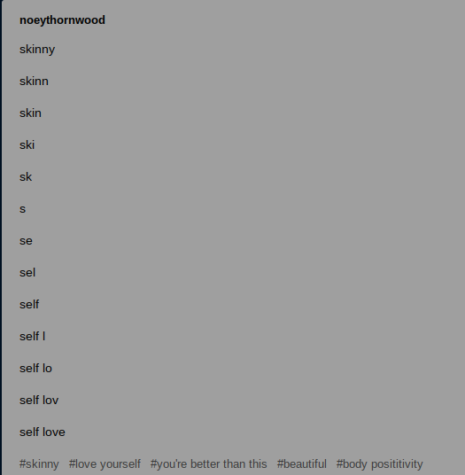
https://www.tumblr.com/blog/noeythornwood
That sparked my relapse into hating the way my body looked.
Eventually, I was taken out of school as the district deemed me “unsafe” to be at school. And no, I don’t mean violent. I mean harmful to myself. But if they never put me in homeschool, I never would’ve gotten better. I never would have been the strong girl I am now. Sure there are times I wake up, look in the mirror and think nasty thoughts about my body, but I overcome them. I say to myself “This is the body I was given. This is the body I’m going to love, unconditionally.” I have moments when I regret emotional eating, but I know that I cannot let that reign over my life anymore. I am a beautiful young woman and I will not let those demons in my head take over again.
When I joined a new school I had little to no friends, which sent me back into my paranoia and eating habits. When I told one of my closest friends I had an eating disorder she was “surprised… because [I] didn’t seem like the ‘stereotypical’ person to have an eating disorder.”
I asked one of my friends from my sophomore year what his experience was with having friends who had an eating disorder. He said “You see, they skip lunch. They make excuses like ‘I already ate’ or ‘I had a big breakfast.’ And you know, at first, it’s nothing, but as time goes on you see that they keep skipping meals. You see that they look at their food with disgust.” The first time he really knew she had an eating disorder was when he “offered his friend her favorite food and she rejected it. I was like ‘what do you mean no?’ she had never rejected food like that before. That’s when I really started paying attention.”
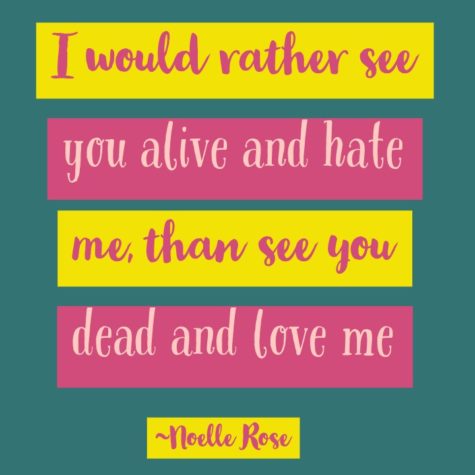
How do I deal with a friend who has an eating disorder?
First of all, there is no “dealing with it.” If you have a loved one who has an eating disorder, they are no less than you. They’re human, beautiful and struggling. The best thing you can do is be there for them, not just when they seem to be getting better, but all the time.
Being friends with anyone who has a mental illness doesn’t mean being for there for them when it’s convenient for you. Now this saying that you have to be a therapist for your friends when they’re down, it just means that you shouldn’t disappear when they need a friend.
I live by a very strict doctrine, “I would rather see you alive and hate me than see you dead and love me.” All it means is that I will do everything in my power to keep my friends safe when they become a danger to themselves, this includes calling their parents if they’ve hurt themselves in any form. I care far too much about my friends to let them destroy themselves just to end the demons destroying their minds.
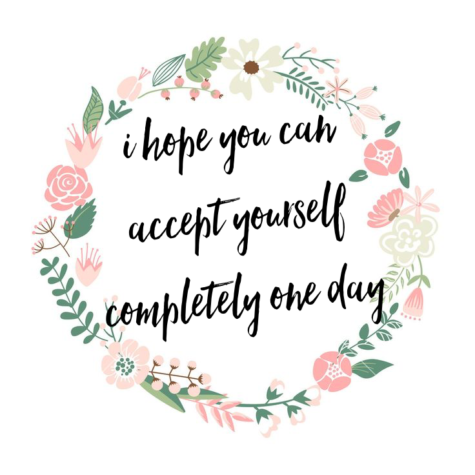
http://nedafeedinghope.tumblr.com/
Eating disorders are not lifestyle choices. They are real illnesses that plague at least 30 million individuals in America alone.
Who can I talk to if I have an eating disorder?
I cannot stress this enough, I am not a medical professional! I have no credentials for mental health medicine, my experiences will be different than yours! Please seek professional help, whether that be 1-on-1 therapy or group therapy.
There are help hotlines for those struggling with disorders like bulimia, anorexia nervosa, binge eating or any others. Know you are not alone, there are individuals who can help you and empathize with your struggles.
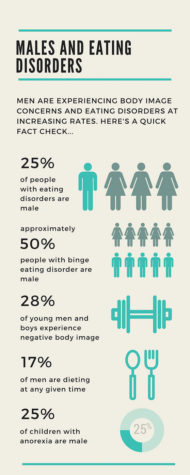
http://www.howfaristoofar.org.au/learn-about-eating-disorders/who-gets-an-eating-disorder
National Eating Disorders Association – (800) 931-2237
Hopeline Network – (800) 442-4673
National Association of Anorexia Nervosa and Associated Disorders – (630) 577-1330

